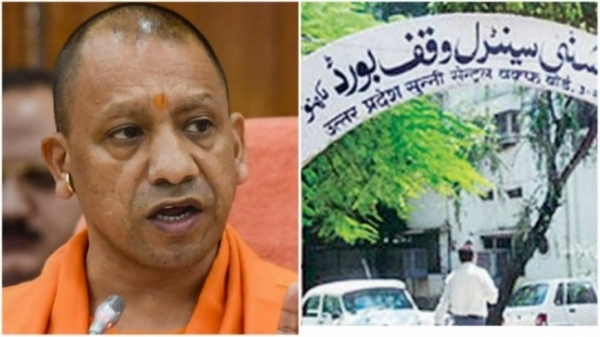UP Waqf board properties to be surveyed
The move comes amid a controversy surrounding an ongoing survey of private madrasas across Uttar Pradesh.
Total Views |
Lucknow, Sept 22: The Uttar Pradesh government has ordered a “well-intentioned” survey of properties managed by Sunni and Shia Central Waqf Boards in the state to check for any anomalies in ownership of the properties or how they were acquired, people familiar with the development said.

The move comes amid a controversy surrounding an ongoing survey of private madrasas across Uttar Pradesh.
Under Islamic law and customs, properties that are donated for religious and welfare work come under the category of Waqf, which means a charitable, religious endowment. Once donated, it is treated as “God’s property”. In Uttar Pradesh, there are 162,229 waqf properties, including 150,000 registered with the Sunni Central Waqf Board and 12,229 with the Shia Central Waqf Board. “Waqf properties are very important. No one has the right to occupy it,” Dharampal Singh, Uttar Pradesh minister for waqf and Haj, was quoted as saying by news agency ANI on Wednesday. “The government has, with good intention, started this survey. Orders have been given to first identify waqf properties before taking further action.” On Tuesday, minister of state for minority affairs Danish Azad Ansari, however, denied knowledge of any such survey order on waqf properties. A state government official familiar with the development said the survey order has been sent to all district magistrates. “They have been asked to submit details of such waqf properties within a month,” the official added, requesting anonymity. The state government has also revoked with immediate effect a 1989 revenue department order under which uncultivable land at several places was “illegally registered” as waqf property, an official said. The state government, in an order issued on September 7, directed all divisional commissioners and district magistrates to examine all proceedings taken under the 1989 order to correct revenue records accordingly. It sought a report within a month. Ansari termed the exercise a “normal departmental process”, saying it has nothing to do with other Waqf properties, as reported by PTI. The minister said in some media reports it is being told that the exercise is like the ongoing survey of private madrassas, which is incorrect. Department deputy secretary Shakeel Ahmed Siddiqui said it has come to the notice of the government that under a mandate issued by the revenue department on April 7, 1989, common uncultivable land has been “irregularly registered” in revenue records as waqf property. Siddiqui further said there were pieces of barren land that were registered as waqf property by manipulating provisions of the Uttar Pradesh Muslim Waqf Act, 1960. In the order issued by the government, it has been said there is no provision in the Act for the registration of properties without following due process. Opposition Samajwadi Party chief Akhilesh Yadav attacked the government over the decision to survey waqf properties. “The government’s only intention is to entangle people in communal issues in the state,” said Yadav.
Also Read: SGPC oversees 'Gharwapasi' of 500 Sikhs
Defending the government’s move, deputy chief minister Keshav Prasad Maurya said: “Only mafia were getting benefitted and waqf survey is aimed with the right intentions.” In October 2019, the Bharatiya Janata Party-led state government ordered a CBI probe into alleged anomalies related to the sale, purchase, and properties of Shia and Sunni central waqf boards in the state. The first information reports in this regard were also registered at Prayagraj and Lucknow. While the heads of Shia and Sunni waqf boards in the state were not available for comment, some Muslim scholars said the government may be intending to check if authorities neglected provisions regarding the registration of properties under the Waqf Act of 1995 and Uttar Pradesh Muslim Waqf Act, 1960. As per another order in 1989, Waqf properties that were registered under Banjar (barren), Usar (uncultivable), and Bhita (mound) categories must be correctly demarcated in the revenue records.

